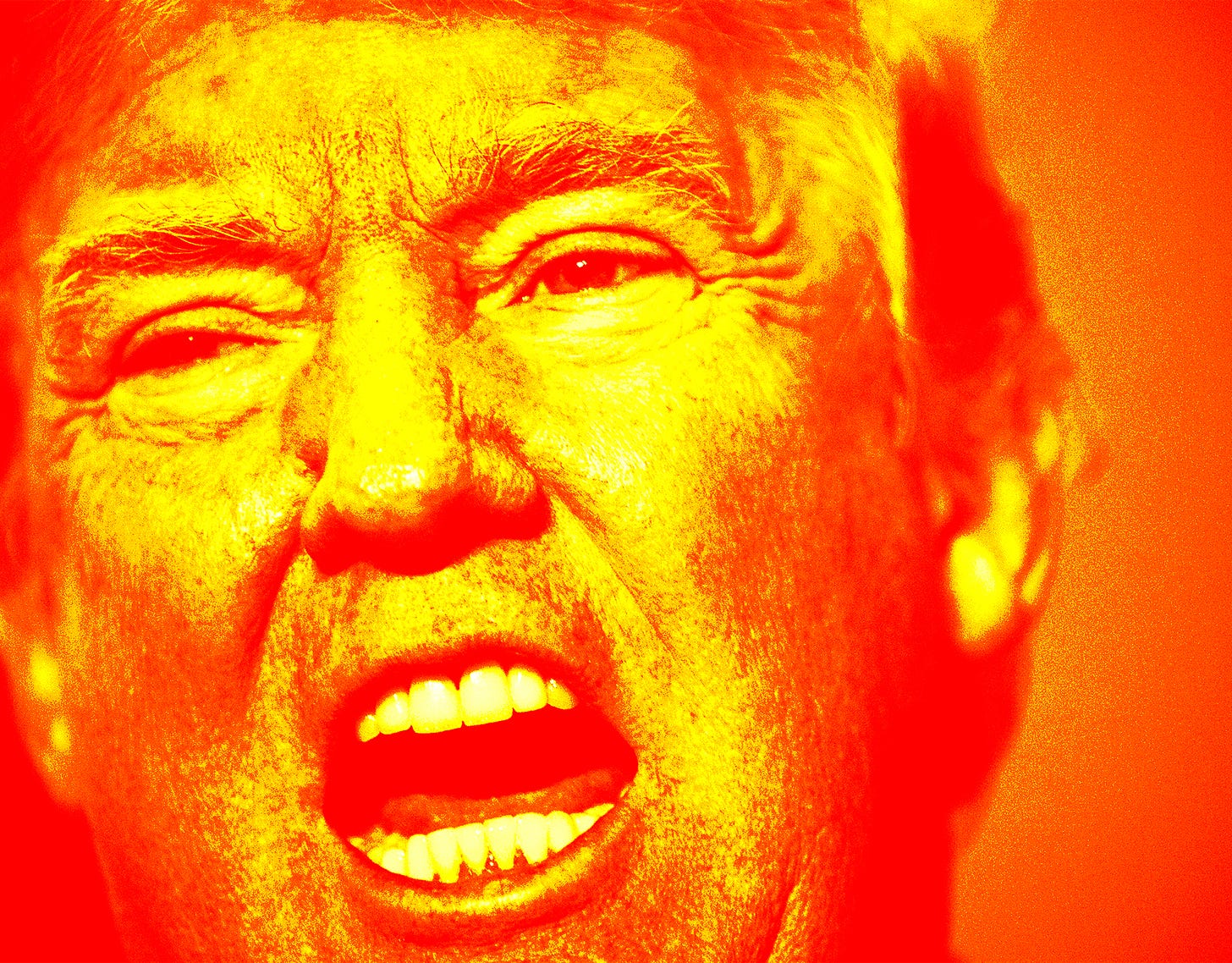1. Fatalism
Republicans have talked themselves into believing that 2024 is absolutely, positively, the last time they’ll have to deal with Donald Trump. Yesterday Benjy Sarlin brought the room down by arguing that even if Trump loses in 2024, he might run again in 2028, actuarial tables be damned.
Is that possible? Absolutely. If Trump loses in 2024, he could easily mount another campaign—though this is as much an indictment of Don Jr. as a plausible heir as anything else.
But let me take this a step further.
During the Republican primaries, one of the arguments that Good Republicans will deploy against Trump as a way of passively challenging him will be to say something along the lines of, “Trump is great! But if Trump is the nominee, we can only get four years, because he couldn’t run for reelection in 2028. We need a Republican nominee who can give us eight years.”
Well I come to you from the future and I’m here to tell you that Donald Trump will respond with the following:
A lot of people are saying that, actually, I could run again. I was treated so unfairly during my first term—the Russia hoax, the witch hunt, the lovers—more unfairly than any president in history. [sniffs] And so I should get a third term. Let me tell you that we’re looking into it and we’ll have a statement very soon. It’ll be a strong statement. And I think a lot of you are going to be very happy with it.
In response, his Republican challengers will gape and sputter and twist their toes in the dirt. But they won’t say that a third term is impossible. Elite Republicans in elected office will decline to comment. And the various precincts of Conservatism Inc. will either ignore this claim, coyly play along with it, or roll their eyes and say, “Well of course this is nonsense so it doesn’t matter. Trump just says stuff.”
Why am I certain that this future is coming down the pike?
Because Trump already did it in 2020.
Look, there was a lot going on in 2020. Impeachment. A pandemic. Massive unemployment. Hundreds of thousands of Americans dying. A presidential campaign. So much to keep track of.
So you probably don’t remember this moment at a rally in Wisconsin in August of 2020:
“We are going to win four more years,” Trump said at a rally in Oshkosh, Wisconsin on Monday. “And then after that, we’ll go for another four years because they spied on my campaign. We should get a redo of four years.”
The crowd went wild. Republican voters loved it. And this idea wasn’t a one-off bit of improv. It was a staple. In September at a Nevada rally he said,
And 52 days from now we're going to win Nevada, and we're going to win four more years in the White House. And then after that, we'll negotiate, right? Because we're probably — based on the way we were treated — we are probably entitled to another four after that.
Do you remember what Republican elected officials and people in conservative media said about the frequent assertion by their candidate that he would flout the Constitution in pursuit of a third presidential term?
Let’s go to the tape:
All of this has happened before. All of this will happen again.
So get ready for the Trump Gets a Third Term argument. It’s coming.
2. Meet Me on the New Twitter
A few months ago I had lunch with one of the Substack execs and I opened by asking him how far along the company was on its plan to kill Twitter.
He laughed nervously and answered only by asking, “What makes you say that?”
I played ball and said that it was obvious that Musk-Twitter was vulnerable; that the alternatives which were popping up—Post, Mastodon, whatever Meta builds—were trying to replace like-for-like in ways that were unlikely to hit the network-effect tipping point; that Twitter’s audience was going to bifurcate, with a big chunk of it embracing video and moving to TikTok; but that the news portion would necessarily need print and that Substack would be its obvious home. Twitter succeeded by displacing blogs. Substack was well-positioned to combine the long-form aspect of blogs with the networked aspect of social media.
The exec laughed nervously again and changed the subject.
All of which is to explain why I was unsurprised by Substack’s rollout of “Notes.” This feature is a dagger aimed at the heart of Twitter. After playing around with it for a few days, I think it might succeed.
So let me explain what it is, why I’m going to be active on Notes, and why I think it might be worth you joining the platform, too.
As it stands right now, Notes is still a minimum-viable product. There are plenty of holes in functionality and you can already see where the updates will add features that make sense.
How does it work? It’s Twitter. Just think of it like Twitter. You have an account. You can read posts from others; or post things yourself; or like / re-post things others post. You can “follow” others, though Notes calls this “subscribing” to them. Many of the people posting in Notes have Substack newsletters, so you can choose to subscribe to these newsletters, or just to subscribe to their notes.
All of this means a few things:
(1) Right now, Notes is like a giant community forum for Substack, where the conversations are primarily driven by newsletter writers.
(2) There’s not a lot of dunking or trolling and there’s almost no shit-posting. The incentives don’t run that way yet.
(3) Notes does not yet function as a breaking-news discovery platform.
The tipping point shift for Notes will be when (if) the number of users leapfrogs the number of Substack creators on the platform. In other words: Do Substack creators become a tiny minority in the broader Notes social ecosystem?
If that happens, then Twitter is dead, because Notes will be a safer, more responsible platform for breaking news and the natural social network for people in media; which will start the flywheel effect for Notes and the doom spiral for Twitter.
I don’t like Twitter; you know that. But I’m going to be active on Notes for a couple of reasons. First, because I feel a sense of responsibility to try to help the platform succeed. The Bulwark was early on Substack and has a fairly large footprint here. I wish we had a better version of Twitter. Be the change, etc.
Second, because it’s interesting to be present at the birth of a platform.
I hope you’ll give Notes a try, especially if you’re on Twitter. But even if you’re not. It’s another chance for our community to grow.
So come over the Notes and say hi to me there.
One last thing: You are all your best selves in our comments community here and I’m grateful for that.





